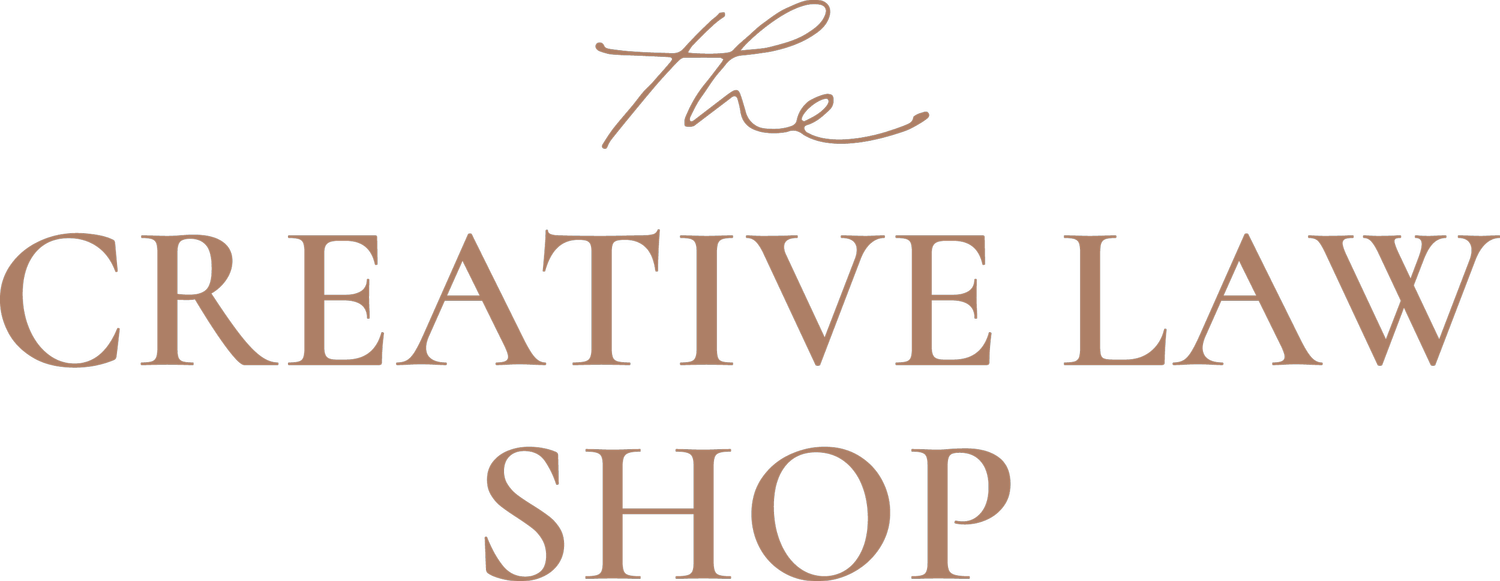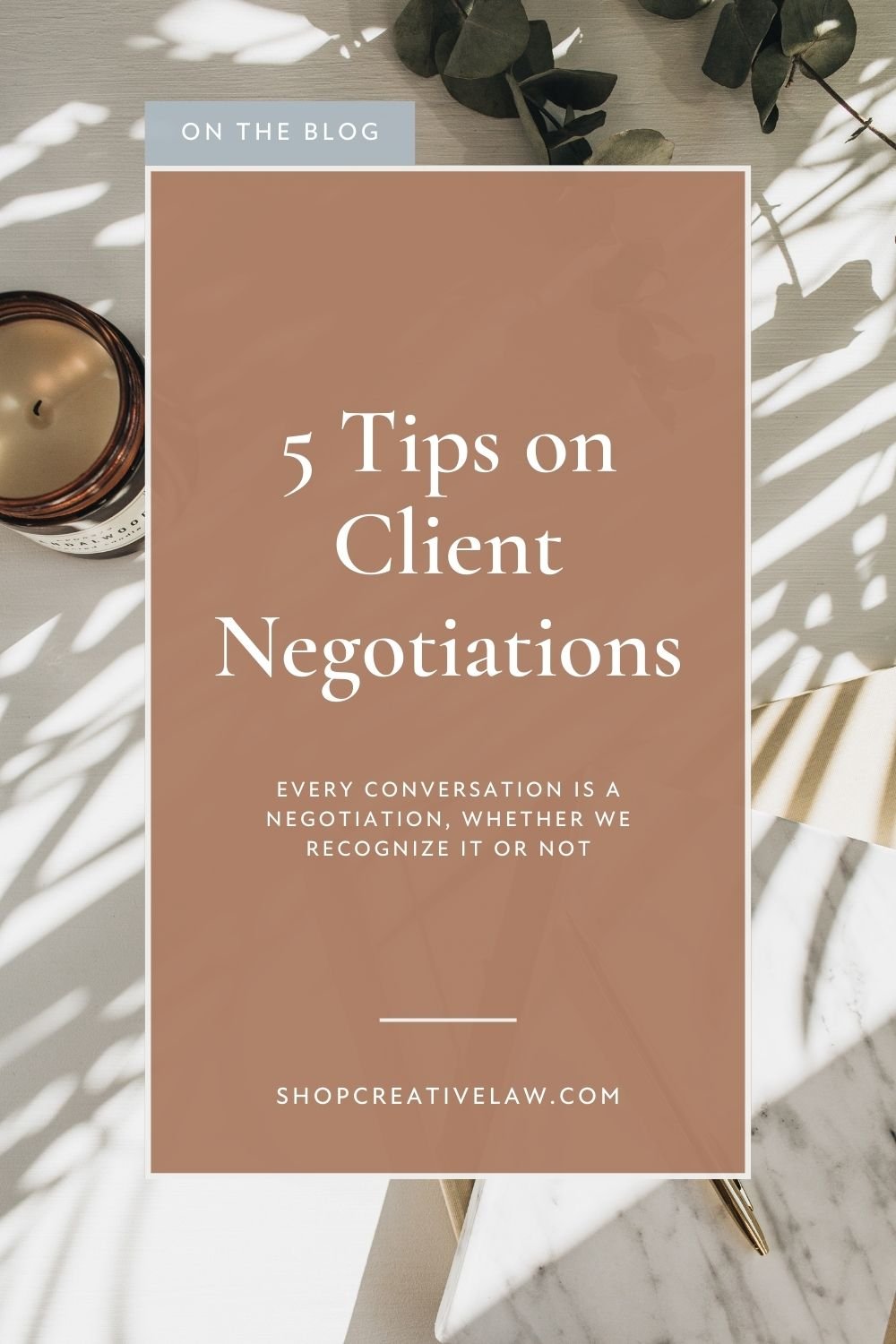5 Tips on Client Negotiations
Every conversation is a negotiation, whether we recognize it or not- particularly in the time of COVID-19.
What do we mean by this? Frankly, everything is up in the air. There is no guarantee that we will be out of the woods in the fall, and be able to resume life as normal. Therefore, there is an element of uncertainty with your scheduled weddings. This may sound dramatic, but it is NOT the end of the world - instead, with a little anticipation and preparation, you can maintain a friendly client relationship, and avoid legal trouble.
Before we begin, much of the information below is learned from Chris Voss's Never Split The Difference book, seminars, and other materials. If you have not read this book, we highly recommend it - listening to the audiobook may truthfully be one of the best uses of your time to move the needle forward in your business.
Think from a long-term perspective (don’t come out of the gate running)
This is the #1 mistake we see wedding professionals making right now. First, anticipate that your clients will be emotional, and frankly, they have every right to be. You don’t. You’re the professional they hired. If they send you an email saying they want to cancel, unfairly blame you, etc, do NOT respond right away with a threat to get your “legal team” involved. This is going to be the fastest way to hamstring your own goals - after all, why on earth would your client trust you enough to even want to work something out after that? At all times, you are leading your client to a peaceful resolution. Threats of litigation are not appropriate until the situation escalates dramatically (for example, they threaten to sue, you’ve been going back and forth multiple times, etc).
Be firm, yet empathetic
Ronald Reagan said it best: “If you’re explaining, you’re losing.”
As Voss describes in his book, employ “Tactical Empathy™” to diffuse the situation, and extract their fears and emotions from the conversation. Do not ignore their fears or pretend they aren’t there and don’t overexplain. Less is more here. State something like “This is an unpredictable and rapidly evolving scenario, and we know that the uncertainty of not knowing if your wedding can occur or if you should cancel your wedding is heartbreaking. Let’s focus on preserving as much of your engagement season as we possibly can so that you can host the celebration that you all deserve”.
Be calm...and keep everything in writing.
The only thing you’re going to want to do when you’re being yelled at, lied to, or bullied, is argue or fight back. Yet, this is exactly what you should not do in the moment. Set aside the pride of winning that battle, and maintain your overall perspective of winning the war. All of your conversations right now are likely difficult conversations. To succeed under these circumstances, you have to help people make the switch out of a defensive mindset.
This sounds overly simplistic, but if your client is yelling, crying, etc in a phone call….do not talk over them, and do not push back. Stay dead silent, and allow them to get it “all out there”...because once they do, you will have the opportunity to put your professionalism on display, returning the conversation to just that - a conversation.
If you have phone discussions with your client, the best practices are to always follow them up with a written record. Something as simple as an email stating “In an effort to stay organized in the midst of a rapidly-evolving scenario, I wanted to provide a quick recap of our conversation” with bullet points about what was discussed/ agreed upon will be incredibly useful down the road.
“How”?
Remember the “if you’re explaining, you’re losing” concept?
That’s true for so many reasons- one of which being, when forced to produce a coherent argument in the heat of a dispute or conversation...most of us can’t perfectly articulate the point. We all know it’s hard to think on your feet, especially when emotions and feelings of combativeness are involved.
The key here is not to ask “how” in a condescending, rude manner but to ask it as a literal question. As Voss states “ Deference is the key. You don’t want your tone of voice to trigger their defenses and destroy the groundwork you’ve laid when you deactivated their fears. ‘How do we work our way through this so that we don’t destroy each other and we put ourselves in a position to pick up the pieces and work together when this is over?’ A deferential “How?” triggers what Daniel Kahneman would call “Slow thinking”, or in-depth stop-you-in-your-tracks thinking. It is designed to activate deep contemplation.”
Another factor your client may not have thought of: how can you operate your business to the ability to even be able to give them a refund, if you’re at risk of going bankrupt from this disruption?
Again, this can be key in shifting the scope of the conversation from combativeness, to an actual logical conversation once again.
Be personal.
I don’t mean oversharing or emotional yourself here. But, at one point, odds are your clients booked you because they liked and trusted you. Your focus should be getting them back to that place - incentivizing them to not just rebook you but to find a non-litigious resolution.
And the good news is, you’re already a step ahead of most in a negotiation - you have that connection and rapport that is so desperately needed in a negotiation. Use it.
Put yourself in their shoes- and make it clear to them that you’re doing so. Try to repeat what they are saying back to them in a way that makes it clear that you’re trying to work with them, and trying to understand their perspective. In his book, Voss refers to this as “Labeling” - literally, labeling what you hear.
When setting a client up for a rescheduling: “It sounds like you don’t think you’ll be able to have a wedding.”
When clients refuse to reschedule: “It probably feels like there are just no other options to host your wedding.”
When clients want a full refund: “It probably feels like things are changing from one minute to the next.”
When clients host during an unsafe time: “It sounds like you guys have thought through quite a few options.”
Note: these are generalized examples. Read your situation to determine the appropriate verbiage. The point is to use your question to spark a feeling of collaboration, and to make your client think “Maybe they actually get it after all.” This is the essential element to surviving the emotionally charged conversation and getting the conversation back on track.
It cannot be repeated enough: the key to your success in these difficult conversations will be directly connected to your ability to guide your client away from having an emotional exchange, and instead, to working together to find the best solution.




